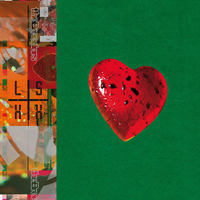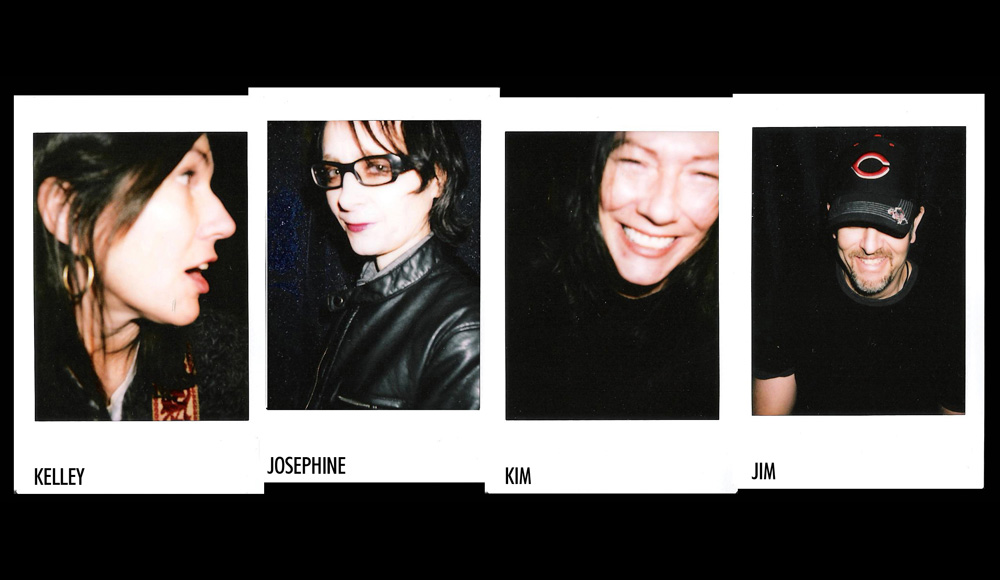 The Breeders: LSXX (4AD, 4/23/13)
The Breeders: LSXX (4AD, 4/23/13)
When The Breeders released the classic Last Splash in 1993, the band still was congealing into a new state. Begun as a side project by Pixies bassist Kim Deal in 1990, the rock quartet was transitioning to being a primary focus, and twin sister Kelley Deal had joined the band just a year prior, taking the place of guitarist Tanya Donelly (Throwing Muses) despite limited six-string experience.
Together, however, the Deal sisters made something special that capitalized on their vocal-and-guitar interplay. Aided by their history, Last Splash was a minimal, quirky rock gem. (“Do You Love Me Now?” dates back to 1970s, when the teenage Kim and Kelley played cover songs in bars.)
Now, to celebrate the album’s 20th anniversary, the band has reconvened its 1993 lineup — including bassist Josephine Wiggs and drummer Jim Macpherson — to perform Last Splash in its entirety and release a special edition. We caught up with Kelley (who also leads R. Ring) to talk about chemistry, staying in houseboats, and a disdain for remastering.
(Pick up the LSXX special edition, including all sorts of bonus goodies, this week from 4AD.)
How is the chemistry of this lineup after not playing together for so long?
We started getting together, gently, in Kim’s basement sometime in the fall and had a couple of weeks of looking at each other and going, “Um, hello…1-2-3…go!” We had listened to the songs and practiced on our own, and it surprisingly sounded really good very quickly. It wasn’t perfect by any means, but it did give the idea, “Wow! We could actually do this. It sounds like the record.”
Kim and I have played with other people in The Breeders playing these songs like “Cannonball.” And they sound great — they sound awesome — but it’s very different when you have “the chick” doing that one bass part.
[The chemistry] has been really good. It’s interesting — you really do get this feeling like, “Oh, my god, this is just like it was,” for good and bad. Although we’re older now…I think that when you get older, you let that stuff go a lot quicker. “Oh, god, I just gotta unclench. I don’t know why I wanted you to play that note so bad. You don’t have to play that note.”
Has it brought back memories about that time in everyone’s lives?
To be honest, I was drinking a lot and using a lot of drugs. You know what [will happen]? Jim and Josephine will talk — “Do you remember something something?” And Kim and I will kind of look at each other and go, “Huh? What?” So I remember some things, but they’re probably very different than other people remember.
Why did you guys decide to include everything with this lineup in the bonus tracks?
Honestly, it’s not like we’re just reissuing the Last Splash record; we wanted to make it special. A lot of people don’t have it on vinyl, and a lot of the singles people didn’t get. A lot of the singles I don’t have! Then we started thinking about stuff to add in there — well, we’ve got that Live at Stockholm show that turned out awesome, and we started looking through archival stuff of interviews, radio performances, and things.
There’s no new mixing or mastering on the record itself, right?
No, sir! Absolutely not. I just hate that. I don’t hate it as a rule…
Okay, I’m just saying that I don’t hate it as a rule so that I sound more tolerant, but basically, I hate it…as a rule, across the board! Just to go in and remaster something or remix something just because? What is your goal? You have to take it a song at a time. What don’t you like about that, sir? Or this idea of just turning up the mids so that it sounds better on an iPod or a computer? No! No, thank you.
Are there tracks from Last Splash that you’re really excited to play or are dreading to play again? Are there any that you guys never played live?
Oddly enough, when we knew we were doing the whole album from start to finish, my first thought was “Mad Lucas.” A lot of people know us from these upbeat or poppier numbers, but the album is a bit of a journey in terms of dynamics. And “Mad Lucas” is a dirge — it’s like five minutes long. It has really strange textures on it. So I was really excited to play that, because I love that stuff. And we’ve never played it live, ever.
We never played “Roi Reprise” live. We only played “Roi” using two guitars, bass, and drums. We never tried to recreate any Moog sounds or cello. Josephine, who also plays cello, she did these really wonderful, low pulses — you think it’s a Moog, but it’s not. But [for the set] we got Carrie [Bradley] on her violin going through an octave pedal, and she’s doing that low pulsing. So that’s been really fun, having an excuse to really go crazy reproducing the sounds. I mean…we’ve got the god-damn wind chimes! Jim is hitting wind chimes after “Invisible Man.” We’re enjoying it.
Do you have a favorite or a particularly weird memory of recording Last Splash?
When we mixed the record — we recorded it in San Francisco, and we went to a place called The Record Plant to mix it. It’s in Sausalito, which is across the bridge. But over there, instead of staying in hotels, which are really expensive, we stayed on houseboats. You just rent ’em out by the week. And that’s something that I’ll always remember — it’s just really strange.
Did being a “new” guitarist have an effect on Last Splash?
Oh, I’m sure it did. It’s one of those wonderful things where…I can’t riff. I’m sorry if you’re looking for that. But on the other hand — I can hear my guitar on “Don’t Call Home,” and there’s something really wonderful about the way I play it in its simplicity. Each note has its weight.
Just because you’re not ripping a lead — even the simplest melodies are treated as music. I don’t know what it is about it, but I really like hearing me play that. “Listen…I was so charming!” There is no artifice; there is no affectation on it. I don’t wiggle it to make sure it’s still in tune. I don’t rush it because I think that note’s boring and I’m going to go to the next note.
How would you describe your growth as a guitarist/musician since then?
Not very well! [Laughs] I don’t sit with a guitar in my lap and practice leads and runs and scales. I don’t. And there’s part of me that really feels that and like I really should. Just because you can do scales fast does not mean that you’re a [good] guitarist. It’s what you do with that ability, I think, that makes you good or bad. But for some reason, I just don’t find it interesting. I like playing with other people. I like the joy in making music. Maybe it’s that I have no discipline…
You’ve mentioned being a little more vocally inclined than Kim. Is it important for you to have projects like R. Ring where you can take the vocal lead a little more?
Maybe. It’s probably my more natural thing to go to. But when I get stuck on figuring out something cool to play on the guitar — and I know that Kim does this too — we’ll go to a keyboard, or I’ll go to a violin, believe it or not, because it makes you think differently. It wakes your head up; you’re out of your normal element. So, in a way, I’m always out of my element with a guitar because it’s not my natural thing.
Besides the vocal harmonies, what are the advantages to being in a band with a twin sister?
I think that it’s not just [being] a twin sister but someone you grew up with in the same years — you’re listening to the same music, having the same kind of cultural references, whether that’s politically or in entertainment. There’s a shorthand that happens…you can talk around things a lot. I think the same [is true] with music as well.


awesome! can’t wait to see the breeders in chicago.